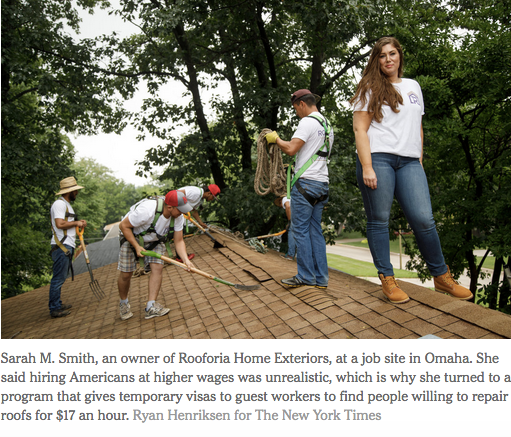The labor market is stumping even the experts. The unemployment rate is near a 16-year low, and employers are fretting about their inability to find reliable workers. That shortage of workers should prompt an increase in wages. Remember that supply and demand curve: When the demand (for workers) exceeds the supply, prices should rise.
Yet wages have stubbornly resisted the pressure. As Janet L. Yellen, chairwoman of the Federal Reserve, noted in congressional testimony this week, the relationship between a tight labor market and wage pressure “has become more attenuated than we’ve been accustomed to historically.”
So why don’t employers offer more? That was a common question readers posed after an article last week about the government’s monthly jobs report quoted Sarah M. Smith, an owner of Rooforia Home Exteriors in Omaha. Ms. Smith depends on a federal program that gives temporary visas to guest workers — known as H-2B visas — because she is unable to find Americans to take a seasonal job repairing roofs that pays $17 an hour. The work is tough, she said, but “the pay is fair.”




